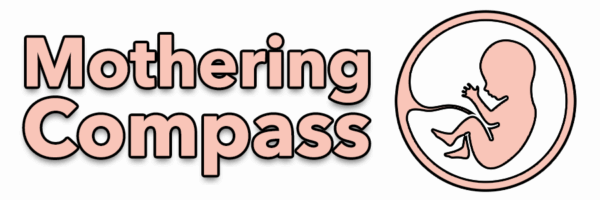Postpartum Hormones: What Every New Mother Should Know
Pregnancy and birth trigger some of the most dramatic hormonal shifts the human body can experience. While much attention is given to the growing belly and the labor itself, the aftermath—what unfolds hormonally in the weeks and months after birth—often goes overlooked.

These chemical messengers influence everything from mood and milk production to sleep and metabolism. Understanding the hormonal landscape of the postpartum period can help mothers feel less confused, more empowered, and better prepared to ask for what they need.
The Hormonal Highs of Pregnancy… and the Crash After Birth
During pregnancy, estrogen and progesterone levels skyrocket—estrogen increases nearly 100-fold. These hormones maintain the uterine lining, support fetal development, and prepare the breasts for lactation.
But once the placenta is delivered, hormone levels plummet almost immediately:
- Estrogen: Drops rapidly, affecting mood, lubrication, and skin.
- Progesterone: Falls too, often contributing to anxiety and restlessness.
- Human chorionic gonadotropin (hCG): Disappears quickly after supporting early pregnancy.
This hormonal crash is natural—but jarring. It’s often likened to the comedown after a drug or adrenaline rush.
Treatment for post partum hair loss can restore confidence for new mothers. Find safe and effective options here.
The Rise of Prolactin and Oxytocin
While estrogen and progesterone fall, prolactin and oxytocin take center stage.
- Prolactin is the primary milk-producing hormone. It’s responsible for lactation and also contributes to maternal behaviors like protectiveness and bonding.
- Oxytocin triggers the let-down reflex during breastfeeding and enhances emotional connection. It’s also known as the “love hormone.”
These hormones are strengthened through touch, skin-to-skin contact, and frequent breastfeeding. They help establish trust and emotional regulation between mother and baby.
But if breastfeeding is difficult or interrupted, prolactin and oxytocin levels may remain low—potentially affecting both milk supply and mood.
Cortisol and Sleep Disruption
Sleep deprivation is common during postpartum, but the reason it hits so hard is in part hormonal.
- Cortisol, the stress hormone, remains elevated due to erratic sleep, new responsibilities, and recovery.
- This hormonal imbalance can lead to anxiety, irritability, memory fog, and even weakened immune function.
Unlike normal sleep deprivation, postpartum exhaustion is hormonally reinforced. The solution isn’t “more coffee”—it’s rest, delegation, and recovery time.
Empowering parents means giving them tools and knowledge. Explore strategies that make family life smoother.
Thyroid Fluctuations: A Hidden Postpartum Risk
Some women experience postpartum thyroiditis, a temporary inflammation of the thyroid that affects hormone levels.
There are two phases:
- Hyperthyroid phase (2–4 months postpartum): Anxiety, weight loss, racing heart
- Hypothyroid phase (4–8 months postpartum): Fatigue, weight gain, depression
It’s often misdiagnosed as postpartum depression or just “new mom tiredness.” A simple blood test can confirm it, and treatment is available. Never ignore persistent fatigue or mood swings—check your thyroid.
Estrogen’s Ongoing Role in Mood and Recovery
Though estrogen crashes after birth, its long-term deficiency can linger—especially in breastfeeding mothers.
Estrogen supports:
- Vaginal lubrication and elasticity
- Skin health and wound healing
- Serotonin production (mood regulation)
Low estrogen can contribute to:
- Painful sex
- Dryness and infections
- Depressive symptoms
In some cases, low-dose estrogen creams or supplements (under medical supervision) may help. But often, hydration, gentle movement, and nutritional support can naturally stabilize these effects over time.
Progesterone: The Quiet Mood Stabilizer
Progesterone, often referred to as the natural calming hormone, helps regulate the nervous system. After birth, its dramatic drop may leave mothers feeling edgy or overly alert.
Signs of low progesterone effects:
- Difficulty relaxing
- Racing thoughts at night
- Mood swings or irritability
While this shift is normal, it’s still taxing. Daily rituals like meditation, breathwork, herbal teas, or warm baths can support the parasympathetic nervous system and gently restore calm.
Postpartum hormones can create unexpected emotional shifts. Learn how to manage this natural part of recovery.
Postpartum Depression and Hormones: The Link
Though not solely hormonal, postpartum depression (PPD) is deeply linked to hormonal regulation—particularly the interplay between estrogen, cortisol, and serotonin.
PPD symptoms may include:
- Feelings of hopelessness or worthlessness
- Lack of interest in the baby
- Emotional numbness
- Sleep disturbances unrelated to baby’s schedule
Hormones create the environment in which PPD can thrive—but they’re not the only factor. Social support, history of mental health, birth experience, and sleep all play a role.
The good news? PPD is treatable, and help is available. It’s a medical condition, not a personal failure.
Hormones and Bonding
Postpartum hormonal shifts are deeply tied to the bonding experience between mother and baby.
- Oxytocin fosters attachment, and is released during breastfeeding and eye contact.
- Dopamine rises with pleasurable interactions (cooing, touch, recognition).
- Serotonin promotes stability and emotional satisfaction.
These hormones require presence and time—not perfection. Bonding isn’t always instant, but it grows through repetition, attention, and shared signals.
If bonding feels delayed or forced, there’s no shame in that. It often corrects itself with time and support. Patience with oneself is essential.
Nutrition and Hormone Recovery
A nutrient-dense diet supports hormonal rebalancing. Prioritize:
- Healthy fats (omega-3s for brain and hormone health)
- Complex carbs (stabilize blood sugar and mood)
- Iron and B12 (counter postpartum anemia)
- Zinc and magnesium (support the nervous system)
Herbs such as ashwagandha, fenugreek, and red raspberry leaf (with a professional’s guidance) can also gently support postpartum recovery.
Hydration, rest, and avoiding ultra-processed foods are equally important. Your hormones are rebuilding—fuel them well.
If you liked our article, and you want to continue your research, we recommend you try this page over at Parents.com which goes much more in depth in certain areas…
Final Thoughts
Postpartum hormones aren’t just background biochemistry—they shape how a mother feels, connects, heals, and shows up for her child and herself. Understanding this internal ecosystem can make the difference between confusion and clarity.
If you’re a new mother, give yourself grace. If you’re a partner or support person, offer patience and education. Postpartum hormones don’t follow a clock—they follow the rhythm of deep, cellular transformation.
With awareness, support, and care, balance can—and does—return.
